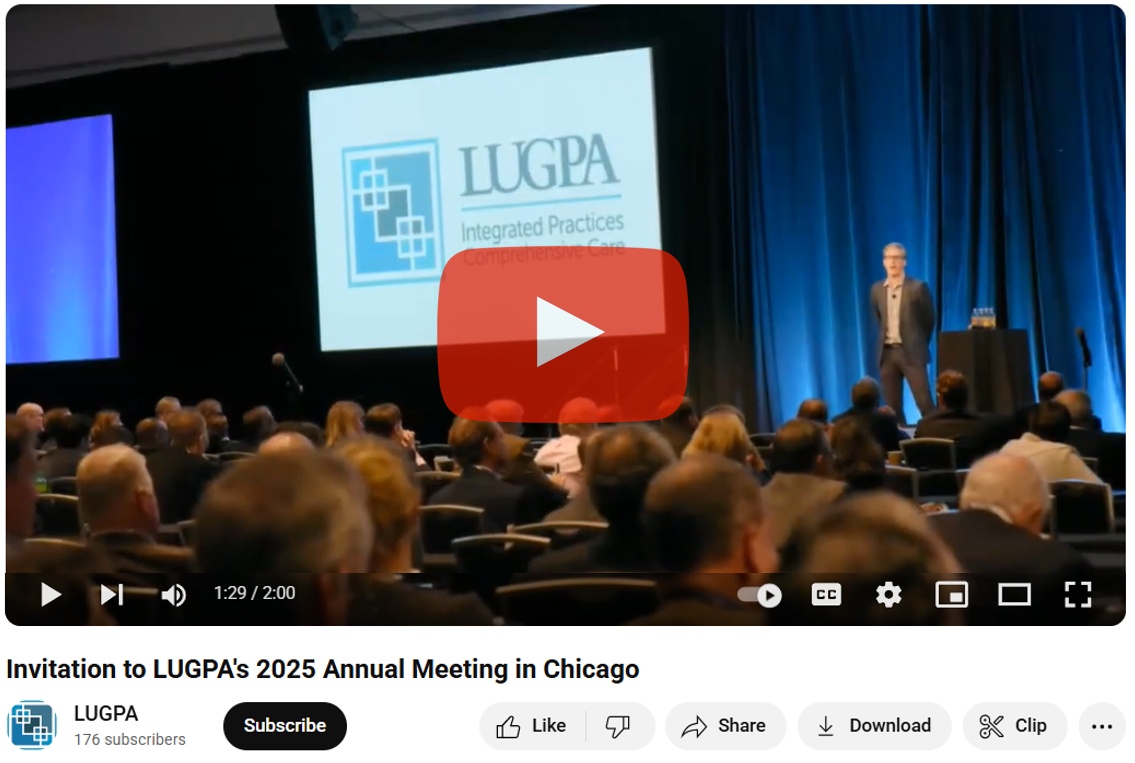LUGPA Policy Update: Prior AuthorizationLast updated in 2023 (See 2025 update here.) LUGPA has long been at the forefront in opposing prior authorization policy, having previously expressed concerns that patients are at risk when treatment is delayed. LUGPA opposes policies restricting appropriate drug access, including prior authorization and step therapy, and supports legislation removing barriers to physician prescribing decisions for their patients. The number of prior authorizations is on the rise. According to an analysis of Medicare Advantage (MA) data conducted by the Kaiser Family Foundation (KFF) released in February 2023, providers submitted over 35 million prior authorization requests in 2021, averaging 1.5 requests per enrollee. The number of prior authorization requests differed between providers, and KFF’s analysis found that insurers with prior authorization requests denied a lower share of the requests. The KFF study found that most prior authorization decisions are not appealed, despite a high reversal rate in the appeals process. According to the survey, only about 11 percent of denials of prior authorization requests were appealed. Of these appeals, 82 percent resulted in either a full or partial overturn of the initial denial. The fact that many appeals are successful calls into question the need for so many denials. Prior approval denials have a strong negative effect on both the quality of care for patients and patient outcomes. In most instances, as the high rate of appeal success demonstrates, the practice or surgeon is choosing the appropriate care for their patients, and the added barrier created by prior authorization requirements only slows the application of treatment. Eighty-eight percent of prior authorizations negatively impacted continuity of care; according to a 2021 survey conducted by the American Medical Association, 60 percent of surveyed physicians indicated it was difficult to determine whether a prescription medication or medical service required prior authorization. Prior authorizations create new administrative and financial burdens on providers. Another report released in 2019 by the Council for Affordable Quality Healthcare, Inc. found that prior authorizations are one of the costliest transactions for providers, with each manual prior authorization costing providers an average of about $11. One in three providers blamed prior authorizations for a patient's serious adverse event, including hospitalization, permanent injury, or death, according to a 2022 American Medical Association survey. In the same survey, around 86 percent of physicians surveyed also argued that prior authorization rules led to greater use of healthcare resources overall. The wide use of prior approval by Medicare Advantage providers would appear to create coverage rules that are more restrictive than original Medicare. The high number of prior approval requests is especially concerning regarding Medicare Advantage plans. According to the Medicare Managed Care Manual, the providers administering the Medicare Advantage plans must provide coverage rules no more restrictive than the original Medicare plan. In a 2022 report by the Health and Human Services Office of the Inspector General (OIG), the results found that Medicare Advantage plans frequently denied care that original Medicare would have covered. LUGPA has been active in advocating for changes to prior authorization rules, especially regarding Medicare and Medicare Advantage. In March, LUGPA sent a comment letter to the Centers for Medicare and Medicaid Services responding to a proposed rule designed to speed and streamline the prior authorization process and enhance the use of electronic resources by both payors and providers. In the Proposed Rule, CMS seeks to alleviate burdens associated with the prior authorization process by proposing that all impacted payors implement and maintain an application programming interface (API) to be used by providers to facilitate the prior authorization process. This electronic system, known as a Fast Healthcare Interoperability Resource (FHIR) Prior Authorization Requirements, Documentation, and Decision (PARDD), would provide information about patients’ prior authorization decisions to help patients better understand their payer’s prior authorization process and how it will affect their care. In a letter sent to CMS on March 13, 2023, LUGPA voiced its support for CMS’ goals of streamlining the prior authorization process to reduce provider burden and allow providers to better focus on administering patient care and its efforts to expedite the prior authorization decision-making timeframe and standardize and shorten delays in the process. The letter outlines five recommendations from LUGPA to CMS:
You can view the complete letter here.
LUGPA’S ACTIONS AND RESOURCESLUGPA Policy Brief: Prior Authorization Reform and the GOLD Card Act - Dec. 18, 2023
|




